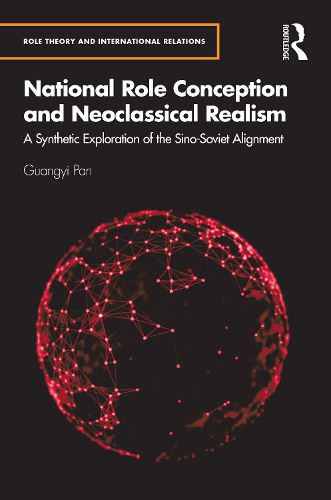Readings Newsletter
Become a Readings Member to make your shopping experience even easier.
Sign in or sign up for free!
You’re not far away from qualifying for FREE standard shipping within Australia
You’ve qualified for FREE standard shipping within Australia
The cart is loading…






Despite China's alignment with Russia being one of the most significant factors shaping the international order, the dynamics of their historic relationships and, more importantly, the sources of China's alignment policy remain under-explored. In National Role Conception and Neoclassical Realism: A Synthetic Exploration into the Sino-Soviet Alignment, Guangyi Pan investigates this question by analysing the changes in China's national role conception from a cross-level perspective.
Adding value to existing scholarly works on China's decision-making logic, he examines two critical and dramatic moments in the history of Beijing's alignment policy towards Moscow: the Sino-Soviet split in the 1960s and the normalisation in the 1980s. Based on massive historic documents and archives, he argues that the evolution of Beijing's approach to aligning with Moscow results from its changing perception of China's role in the world platform, especially its role relationship with the Soviet Union. The fundamental logic lies in how China positions itself, with the Soviet Union long serving as a mirror reflecting Beijing's desired roles during pivotal transformations. By developing a more rigorous and coherent framework to analyse role conceptions, Guangyi Pan explores unit-level factors-including leader images, elite cohesion, and political culture-alongside the impact of systemic stimuli. This approach constructs the complex process of role formation, evolution, performance, and policy outcomes, offering a comprehensive understanding of China's alignment with Russia throughout modern history.
Aimed primarily for scholars whose research fields include International Relations theory, the Cold War history and politics of China, National Role Conception and Neoclassical Realism may also be of interest foreign policymakers, students, and political history enthusiasts.
$9.00 standard shipping within Australia
FREE standard shipping within Australia for orders over $100.00
Express & International shipping calculated at checkout
Despite China's alignment with Russia being one of the most significant factors shaping the international order, the dynamics of their historic relationships and, more importantly, the sources of China's alignment policy remain under-explored. In National Role Conception and Neoclassical Realism: A Synthetic Exploration into the Sino-Soviet Alignment, Guangyi Pan investigates this question by analysing the changes in China's national role conception from a cross-level perspective.
Adding value to existing scholarly works on China's decision-making logic, he examines two critical and dramatic moments in the history of Beijing's alignment policy towards Moscow: the Sino-Soviet split in the 1960s and the normalisation in the 1980s. Based on massive historic documents and archives, he argues that the evolution of Beijing's approach to aligning with Moscow results from its changing perception of China's role in the world platform, especially its role relationship with the Soviet Union. The fundamental logic lies in how China positions itself, with the Soviet Union long serving as a mirror reflecting Beijing's desired roles during pivotal transformations. By developing a more rigorous and coherent framework to analyse role conceptions, Guangyi Pan explores unit-level factors-including leader images, elite cohesion, and political culture-alongside the impact of systemic stimuli. This approach constructs the complex process of role formation, evolution, performance, and policy outcomes, offering a comprehensive understanding of China's alignment with Russia throughout modern history.
Aimed primarily for scholars whose research fields include International Relations theory, the Cold War history and politics of China, National Role Conception and Neoclassical Realism may also be of interest foreign policymakers, students, and political history enthusiasts.